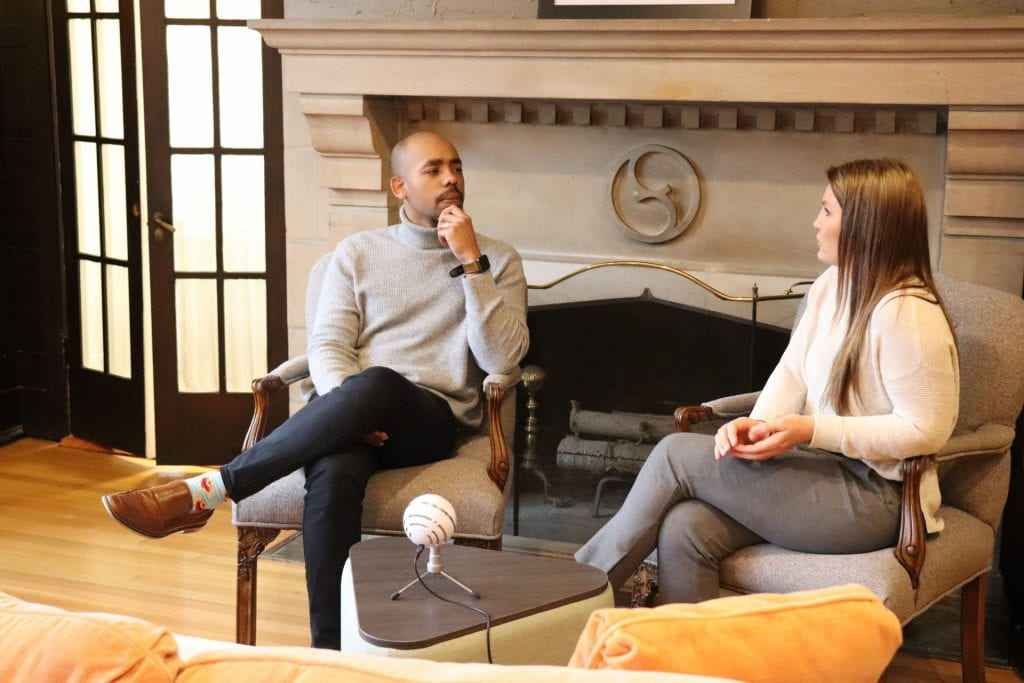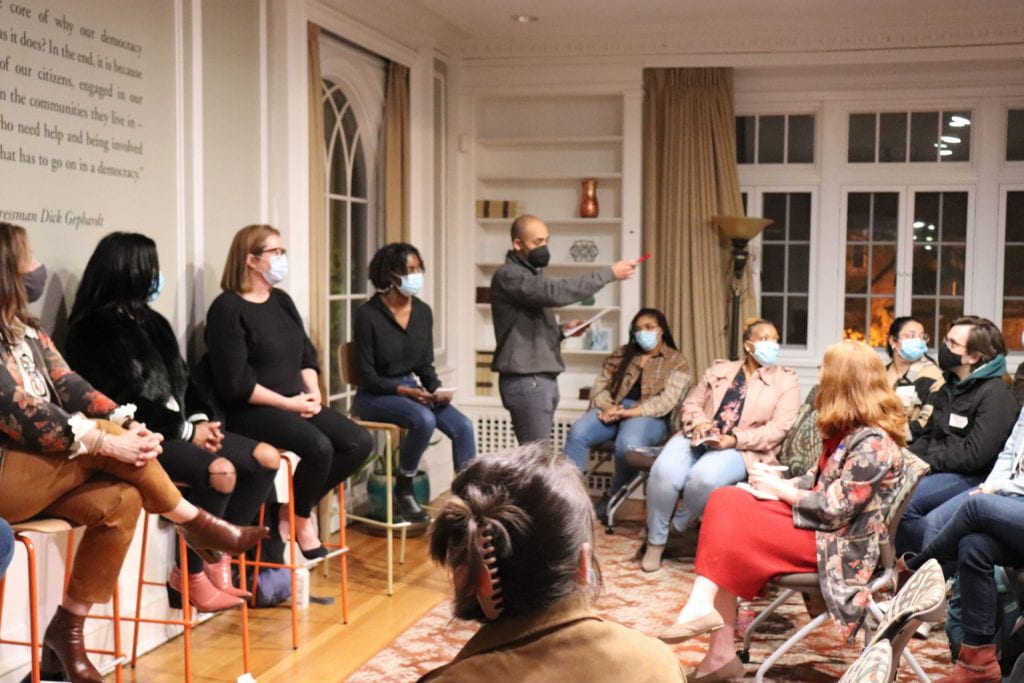As the 2022 Primary Elections rapidly approach, we sat down with Voter Engagement Coordinator, Louis Damani Jones, to hear more about his work. Louis is a graduate of the Brown School at Washington University in St. Louis and a previous Engage Democracy Fellow at the institute. We are excited that he is now bringing his passion for civic engagement to us as a staff member.
Story by Lily Gordon

Louis, tell us a little about yourself and background.
Before accepting this position, I was previously a graduate student at Washington University in the MSW program. I came into the program concentrating on social and economic development and management. I then transitioned into clinical mental health. Prior to entering the program I had done work organizing racial justice advocacy in the north St. Louis region. I also worked in East St. Louis, with Community Organizing and Family Issues (COFI), as well as with a group called Catholic Campaign for Human Development, where we gave social and economic development grants to community partners in East St. Louis and southern Illinois. So, I did a lot of work with both rural and urban communities. That was a big part of my formation in terms of civic and community engagement.
What was your favorite part working as the Engage Democracy Fellow?
I love the opportunity to do new things. When I was the Engage Democracy Fellow, I came in during Covid, so a lot of stuff was remote and we were trying to figure out ways to engage folks. I was really excited to launch our podcast, This Civic Moment. It really is an opportunity to continually engage with people in the community. And I believe that when people can hear from civic and community leaders, realize their human story, and see that they weren’t just born as leaders, but went through this process of development. It shows people, you can be a leader too.
How do you think this position prepared you for the Voter Engagement Coordinator position?

It prepared me well because I got to know the Gephardt Institute and to meet many of the people I would be working with. I also got to see the Voter Engagement Fellow from 2020, so that gave me a lot of insight into the voter engagement process. The best part was helping me learn about WashU as a community and see the different systems that are in place here, particularly for the students.
What ideas do you have to engage Washington University students for the 2022 election cycle?
I believe that one of the things that excites people to vote is when they feel like they understand what’s happening in the conversation. When they understand not just the candidates, but the policies, context, and story of their vote. That’s really something that gets people interested in participating. I think a lot of people feel like their vote doesn’t matter or is non-consequential. So, they don’t want to take the time out of their life to participate in that process. Ultimately, the big part of it is the civic education piece and contextualizing it. Teaching them how their vote impacts their world.
What has made you passionate to pursue a career uplifting democracy and community engagement?
I’ve always been engaged in civic action to some extent. My dad is a community organizer in New York, and it’s been a big part of my life and family story. I find it to be an outgrowth of what I’ve always been interested in. A lot of it has been in organizing, but I do think a big part of organizing is civic education and getting people to vote. Fundamentally, a lot of the things that people want to happen are connected to policies that people will enact when elected. I really just want people to know that they have a bigger impact than they may think.
Is there anything else you would like our readers to know?
Get registered to vote! I would also invite people to explore their civic identity. It can be really exciting to come to new civic conclusions. That’s been a really big part of my journey, just learning. Here at the Gephardt Institute, we have a value of inquiry. So, I always want to be asking questions and willing to talk to people with different ideas. That’s been something really impactful to my formation and identity.